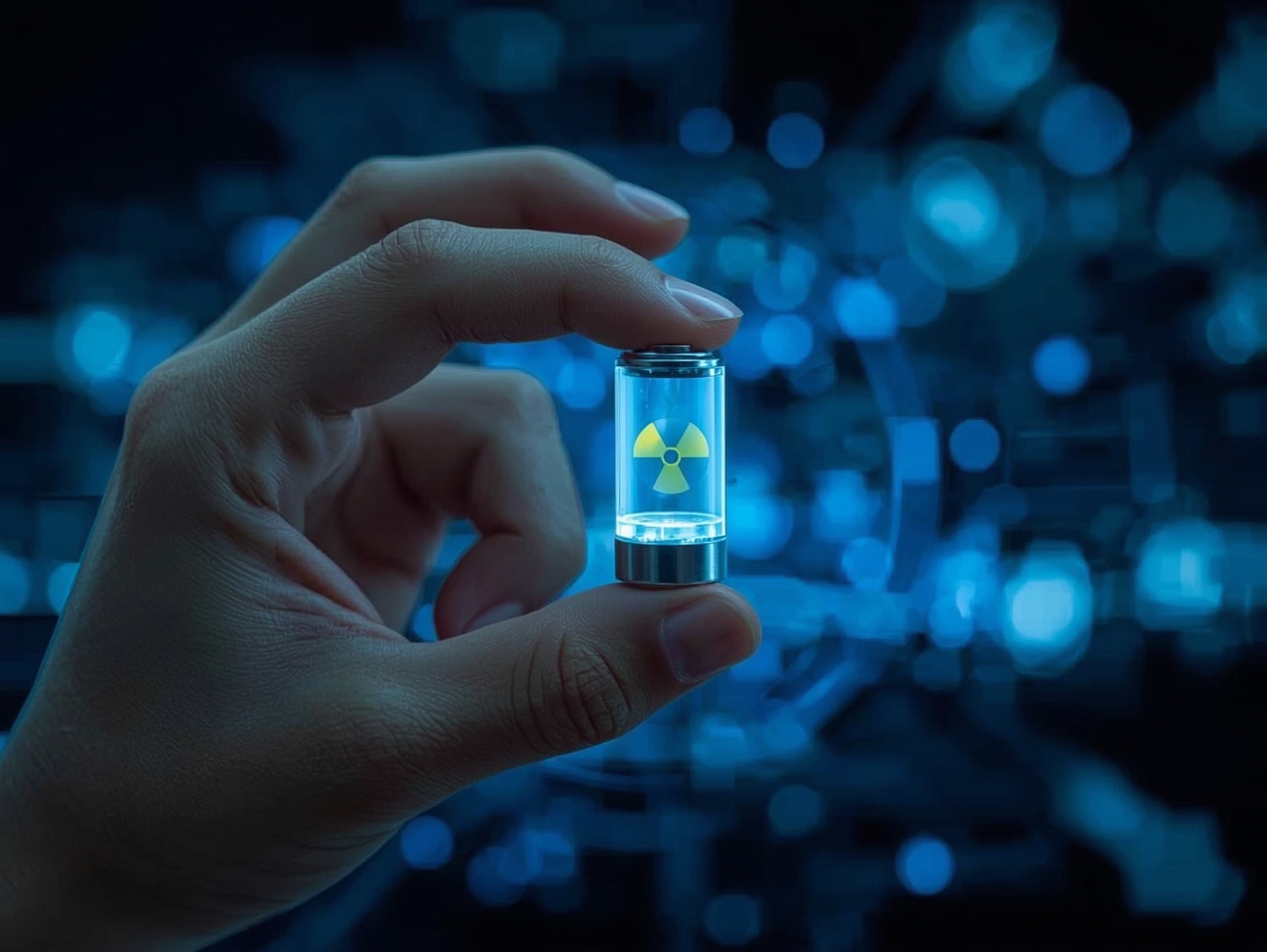
Beijing-based Betavolt claims to have developed a nuclear battery that represents the world’s first achievement in the miniaturization of atomic energy. This innovation involves integrating 63 nuclear isotopes into a module smaller than a coin.
The new battery, described as next-generation, uses a process known since the 20th century to convert the energy released by the decay of isotopes directly into electricity. According to the manufacturer, the project is now in the advanced pilot testing phase; the goal is to launch large-scale production for commercial applications, such as powering drones and phones.
As part of China’s 14th Five-Year Plan, which aims to consolidate the country’s economy between 2021 and 2025, research has begun to reduce the size and make nuclear batteries marketable. At the same time, European and American research centers are also engaged in the development of such batteries , as reported in an article published in the Independent.
“Betavolt nuclear energy batteries can meet the long-lasting power needs of a variety of applications, including aerospace, artificial intelligence (AI) equipment, medical devices, microprocessors, advanced sensors, small drones, and microrobots,” the startup said in a press release. “This new energy innovation will help China gain a competitive advantage in the new round of the AI technological revolution.”
According to Betavolt, its cutting-edge nuclear battery can deliver 100 microwatts of power and 3 volts of voltage, packed into a 15x15x5 cubic millimeter volume. By 2025, the company aims to produce a battery with a capacity of 1 watt.
Their small size allows them to be used in series to produce more energy, with the company envisioning cell phones that never need recharging and drones that can fly forever. Their layered design also ensures they won’t catch fire or explode in response to sudden force, says Betavolt, while still being able to operate at temperatures ranging from -60°C to 120°C.
Betavolt scientists used the radioactive element nickel-63 as the energy source for the battery; they then employed diamond semiconductors to convert the energy. The team developed a single-crystal diamond semiconductor just 10 microns thick and then placed a 2-micron-thick nickel-63 foil between two diamond semiconductor converters.
Nuclear power, however, also raises radiation concerns. Betavolt has addressed this concern, stating that the battery is safe as it emits no external radiation and is suitable for use in medical devices inside the human body, such as pacemakers and cochlear implants.
“Nuclear-energy batteries are environmentally friendly. After the decay period, the 63 isotopes transform into a stable isotope of copper, which is non-radioactive and poses no threat or environmental pollution,” the company said.
It may also be safer, as Betavolt claims the BV100 will not catch fire or explode if punctured or even shot, unlike some current batteries that can be dangerous if damaged or exposed to high temperatures.
Scientists in the Soviet Union and the United States succeeded in developing the technology for use in spacecraft, submarine systems, and remote scientific stations. However, thermonuclear batteries were expensive and cumbersome.
Follow us on Google News to receive daily updates on cybersecurity. Contact us if you would like to report news, insights or content for publication.
